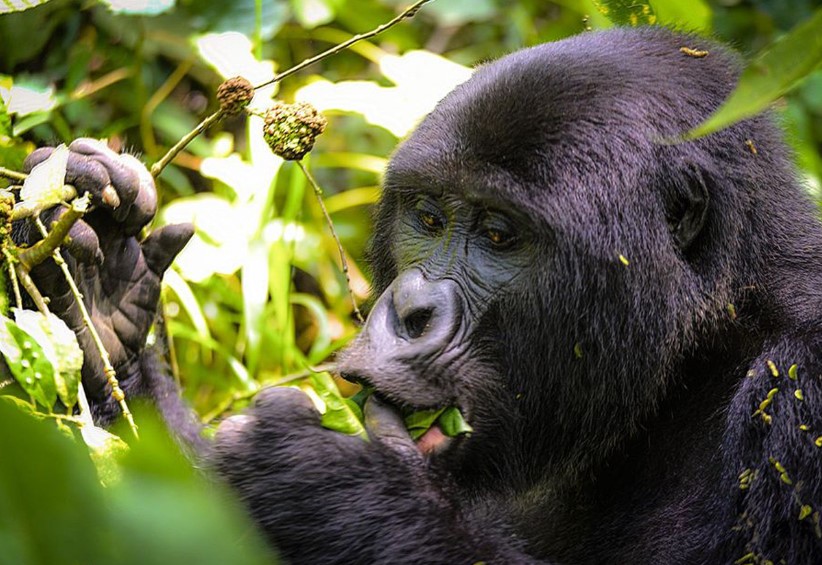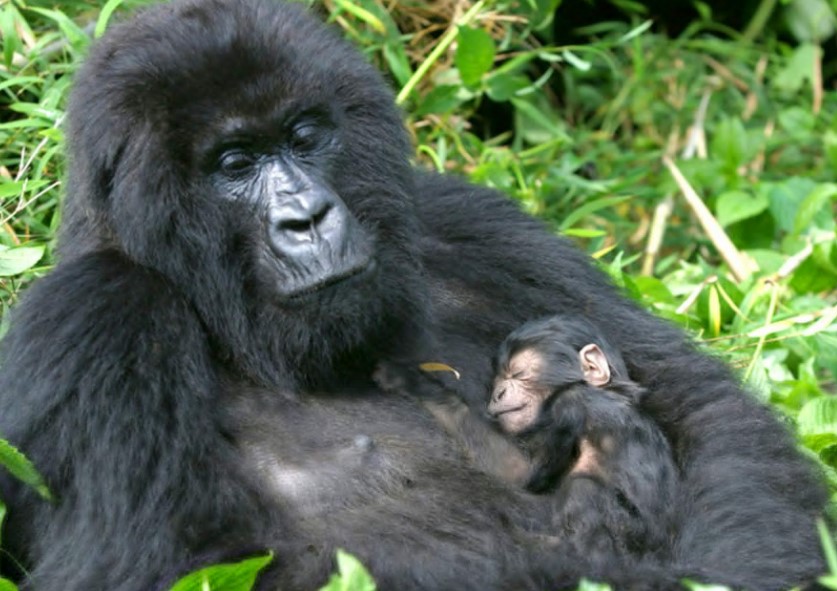Embarking on a gorilla safari is a dream come true for many nature enthusiasts. The chance to witness these magnificent creatures in their natural habitat is a once-in-a-lifetime experience that leaves an indelible mark on your soul.
However, when planning such an adventure for elderly individuals, it’s crucial to take their unique needs and limitations into account. In this guide, we’ll explore how to plan a gorilla safari tailored to the comfort and safety of elderly participants, ensuring that their dream safari becomes a cherished reality.
Destination Selection
The first step in planning a gorilla safari for elderly people is to choose the right destination. Two African countries are renowned for their gorilla populations: Uganda and Rwanda. Both offer excellent gorilla trekking experiences, but each has its own unique charm and considerations.
Uganda, often referred to as the “Pearl of Africa,” boasts lush landscapes and a diverse range of wildlife. Bwindi Impenetrable National Park and Mgahinga Gorilla National Park are the primary destinations for gorilla trekking in Uganda.
Bwindi is known for its dense forests, while Mgahinga is part of the Virunga Massif, where gorillas traverse the borders of Uganda, Rwanda, and the Democratic Republic of Congo. Choosing Uganda provides opportunities for additional wildlife encounters, such as chimpanzee tracking and birdwatching.
Rwanda, on the other hand, is known for its well-organized tourism infrastructure and gorilla conservation efforts. Volcanoes National Park, located in the Virunga Mountains, is the prime location for gorilla trekking in Rwanda.
Its proximity to Kigali, the capital city, makes it an accessible option for elderly travelers. Moreover, the ease of travel and scenic beauty make Rwanda a popular choice for those looking for a more comfortable experience.
Safari Duration
Elderly travelers may prefer a shorter safari duration to reduce physical strain and fatigue. A typical gorilla safari spans two to three days, allowing participants to enjoy the trek without overexertion. It’s essential to ensure the trip includes ample rest and downtime for elderly participants to rejuvenate.
Health and Fitness Considerations
Before booking the safari, all participants, especially elderly individuals, should undergo a thorough medical examination. This will help identify any underlying health issues and ensure that everyone is physically fit for the trek. The gorilla trek can be demanding, involving hikes through uneven terrain and steep hills. If necessary, consult a physician and consider obtaining a medical clearance.
Accommodation
Selecting the right accommodations is paramount to ensure a comfortable and enjoyable safari. Consider booking lodges or hotels that are elderly-friendly and accessible. Look for features such as:
- Ground-level or easily accessible rooms.
- Non-slip flooring.
- Grab bars in the bathroom.
- Comfortable beds and seating.
- Adequate lighting.
- Proximity to the trekking starting point.
Group Size
It’s advisable to limit the group size for elderly participants to ensure a more personalized and manageable experience. Smaller groups offer greater flexibility, allowing the guide to cater to individual needs and preferences. Smaller groups also reduce noise, making it easier to observe the gorillas in their natural habitat without disturbances.
Trek Difficulty Level
Gorilla treks are usually categorized into different difficulty levels, based on the terrain and the proximity of the gorilla groups to the starting point. When planning a safari for elderly adventurers, opt for a trek that is categorized as easier or moderate. These treks involve less strenuous hiking, reducing the physical demands on participants while still providing a rewarding gorilla viewing experience.
Trekking Gear and Packing
Adequate preparation is crucial for a successful gorilla safari. Ensure that elderly participants have suitable trekking gear, including:
- Comfortable and supportive hiking boots or shoes.
- Lightweight, moisture-wicking clothing.
- A rain jacket or poncho (considering the unpredictable weather).
- A comfortable backpack for essentials like water, snacks, and a camera.
- Walking sticks for added stability.
Additionally, pack any necessary medications and first aid supplies tailored to the specific health needs of the participants.
Guide and Porter Services
Engaging experienced guides and porters can significantly enhance the gorilla safari experience for elderly adventurers. Guides are not only knowledgeable about the gorillas and the local environment but can also provide valuable assistance and support during the trek. Porters are available to help carry any additional gear, should elderly participants require it.
Acclimatization
If the safari includes high-altitude locations, such as Mgahinga Gorilla National Park or Volcanoes National Park, consider scheduling an acclimatization day at a lower elevation before the gorilla trek. This allows participants to adjust to the altitude and reduce the risk of altitude sickness, which can affect elderly individuals more profoundly.
Alternative Activities
Gorilla safaris often include downtime between treks. For elderly travelers, it’s essential to offer alternative activities that are less physically demanding and provide cultural or wildlife experiences. Some options include:
- Guided nature walks.
- Cultural visits to local communities.
- Birdwatching excursions.
- Relaxing by the lodge or at a nearby spa.
Dietary Preferences and Restrictions
While planning meals for the safari, take into account the dietary preferences and any restrictions of elderly participants. Communicate these preferences to the lodges or hotels to ensure that everyone enjoys their meals comfortably.
Insurance and Travel Documentation
Ensure that all participants have adequate travel insurance that covers medical emergencies and evacuation if necessary. Verify that passports and visas are up to date, and advise participants on any necessary travel documents or vaccinations required for the destination.
Conclusion
Planning a gorilla safari for elderly individuals can be a deeply rewarding experience, both for the participants and for those responsible for making it happen. By carefully considering destination, health and fitness, accommodations, and various other factors, you can create a memorable and comfortable adventure that fulfills the dreams of these intrepid travelers.
With the right preparation and attention to detail, a gorilla safari can be a life-enriching experience for elderly adventurers, bringing them closer to the natural world and fostering a deep appreciation for these magnificent creatures and their habitats.



Comment (0)